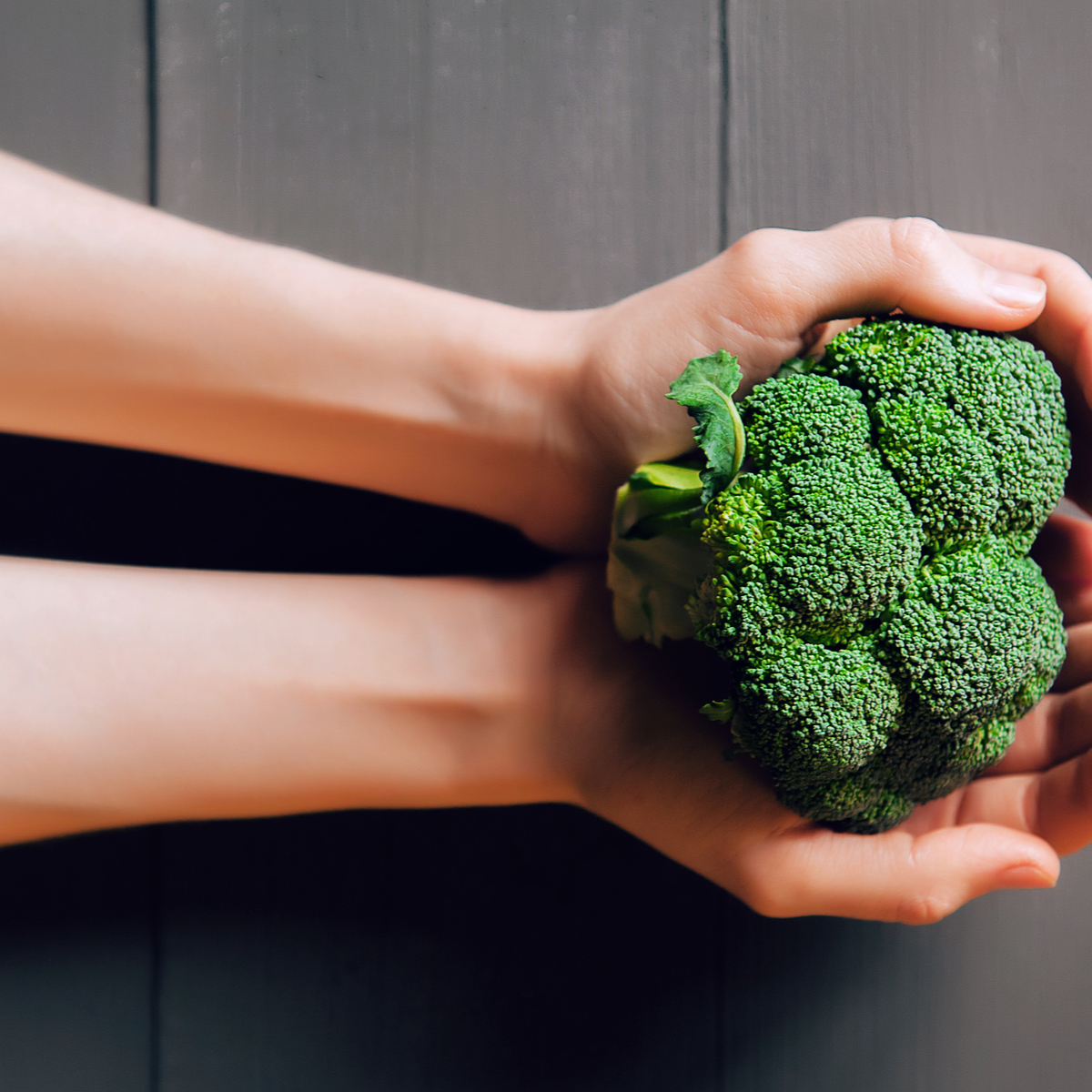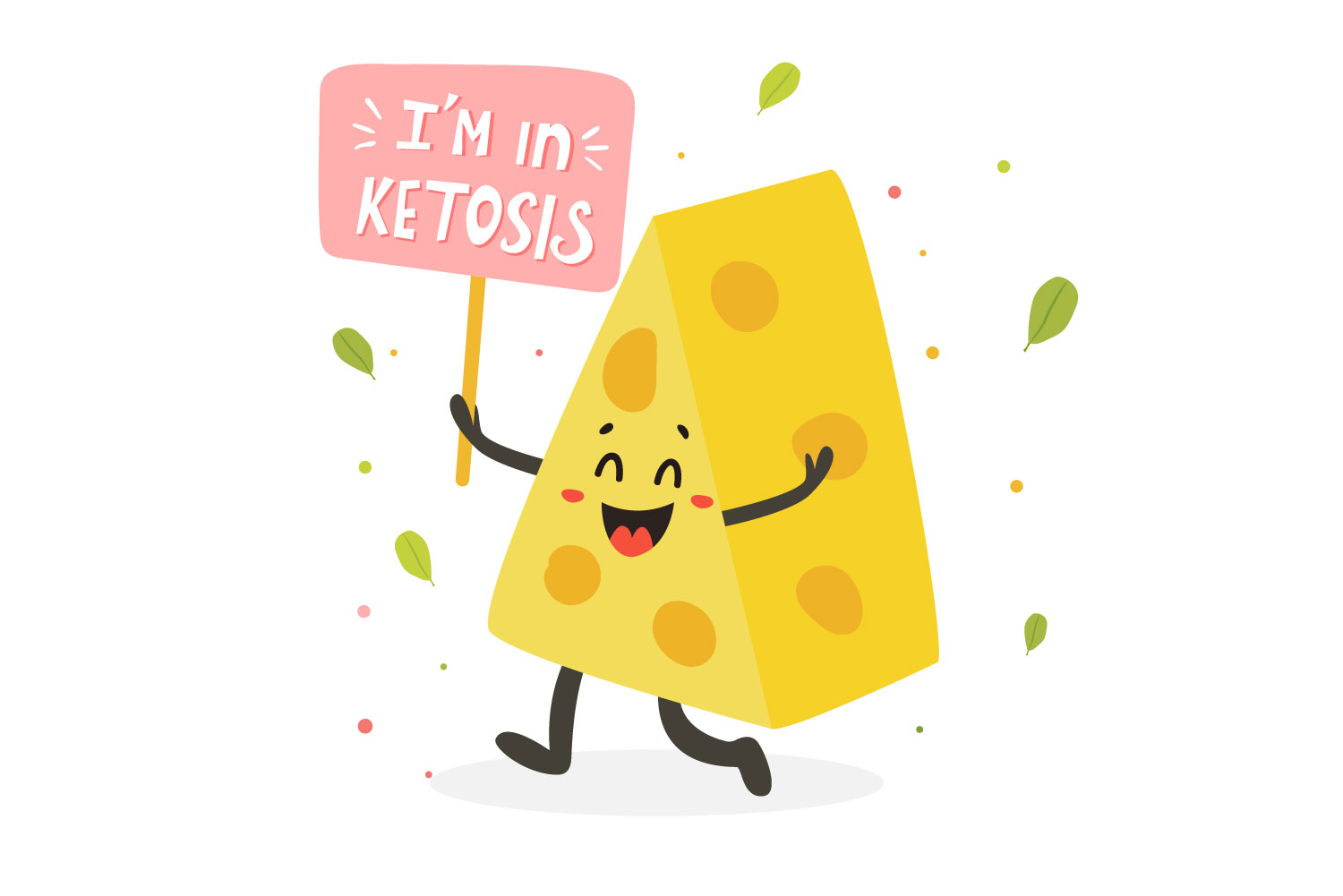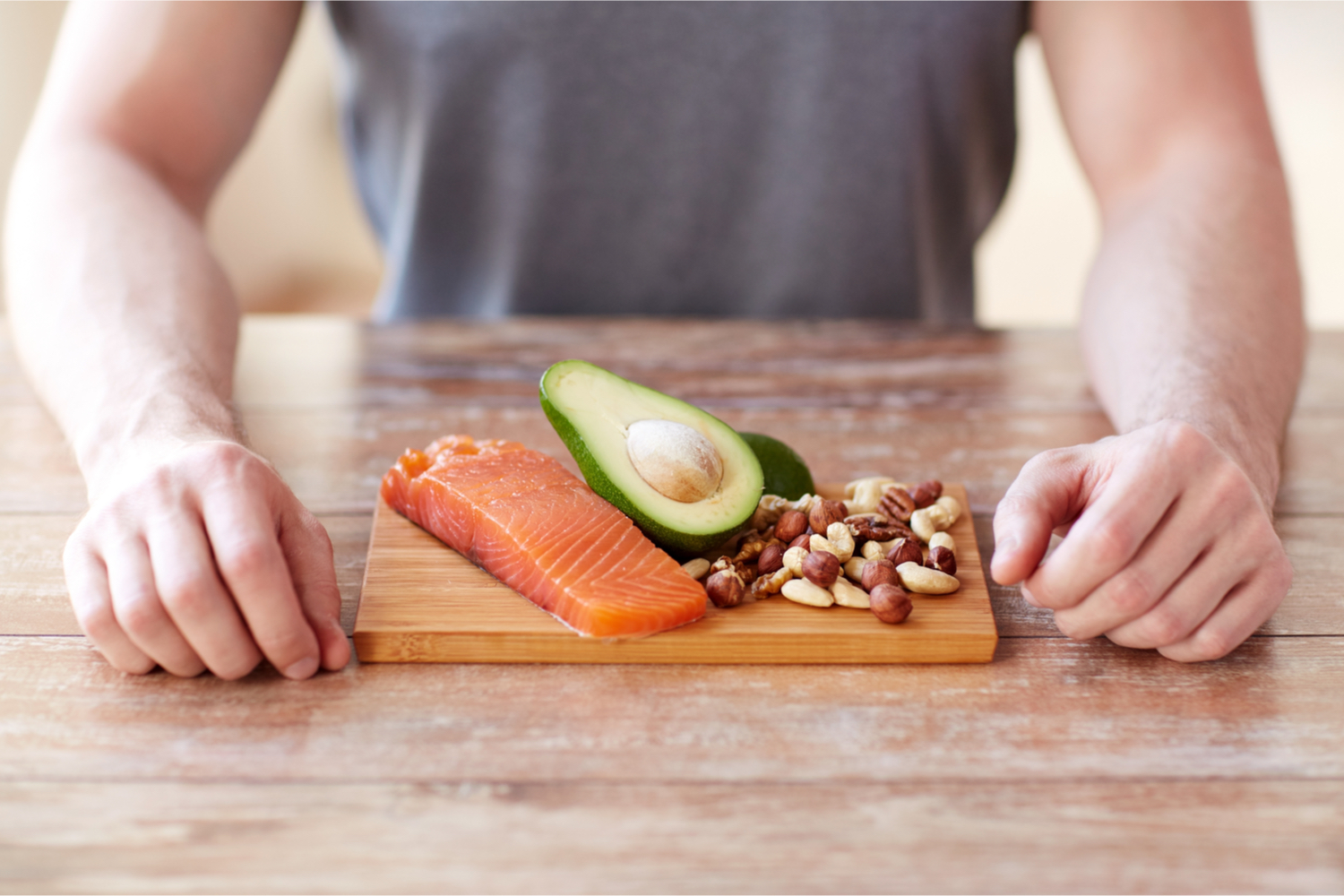SUMMARY
Broccoli benefits your wellness in a host of different ways, and it’s loaded with valuable nutrition. Studies show that this cruciferous veggie fights inflammation, and it can help protect against prostate cancer. Broccoli also supports eye health, and it contains nutrients that can slow the aging process.
Sometimes vital assistance for big health problems can be found in humble places.
That’s certainly the case with broccoli. Fresh broccoli is loaded with antioxidants, packed with nutrients such as vitamin K, vitamin C and healthy omega-3 fatty acids. Research shows that eating broccoli can provide your body with the nutrition it needs to lower blood sugar and prevent the development of certain chronic diseases.
There’s no doubt about it; this inexpensive, readily available vegetable has the goods to support your wellness journey in a powerful way.
Let’s get the scoop on what broccoli has to offer.
In this article, we will:
- Explain what broccoli is, and discuss its variations and nutrients
- List the different ways of preparing broccoli, and explain the impact each has on the vegetable’s nutritional content
- Discuss the ways in which broccoli benefits your health
What is broccoli?
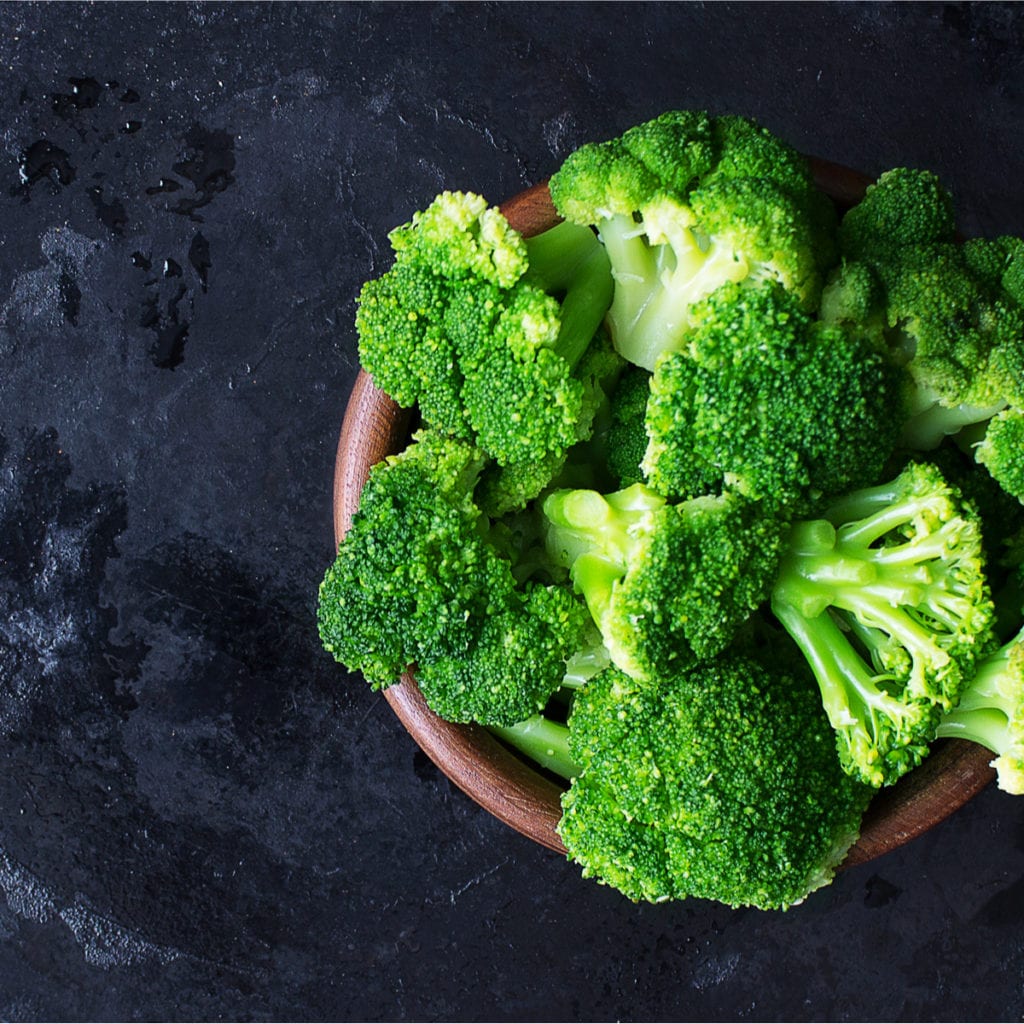
Broccoli is a cruciferous vegetable. Its botanical name is Brassica oleracea.
There are several vegetables in the Brassica family, and they’re all cruciferous. The list of Brassica vegetables includes:
- Cauliflower
- Brussels sprout
- Cabbage
- Turnips
- Radishes
- Kale
- Rutabaga
- Bok choy
- Mustard greens
- Collard greens
- Aragula
Broccoli nutrition
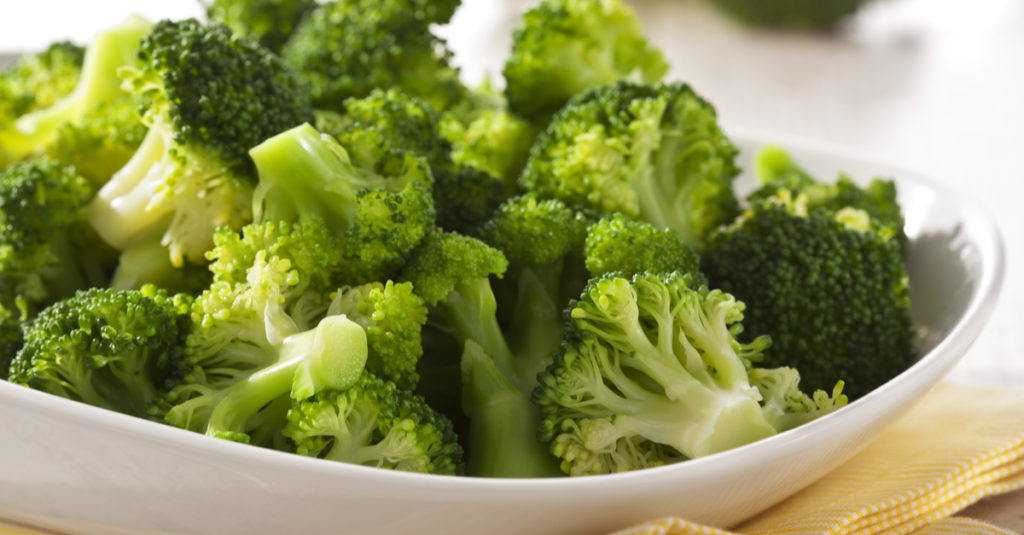
So, what kind of nutrient content does broccoli provide?
According to the U.S. Department of Agriculture (USDA), a single 100-gram serving of broccoli benefits your health with the vitamins and nutrients shown below:
- Calories – 34
- Total fat – 0.4 grams
- Sodium – 33 mg
- Total carbohydrate – 6.6 grams
- Dietary fiber – 2.6 grams
- Sugar – 1.7 grams
- Protein – 2.8 grams
- Calcium – 47 mg
- Iron – 0.73 mg
- Potassium – 316 mg
Types of broccoli
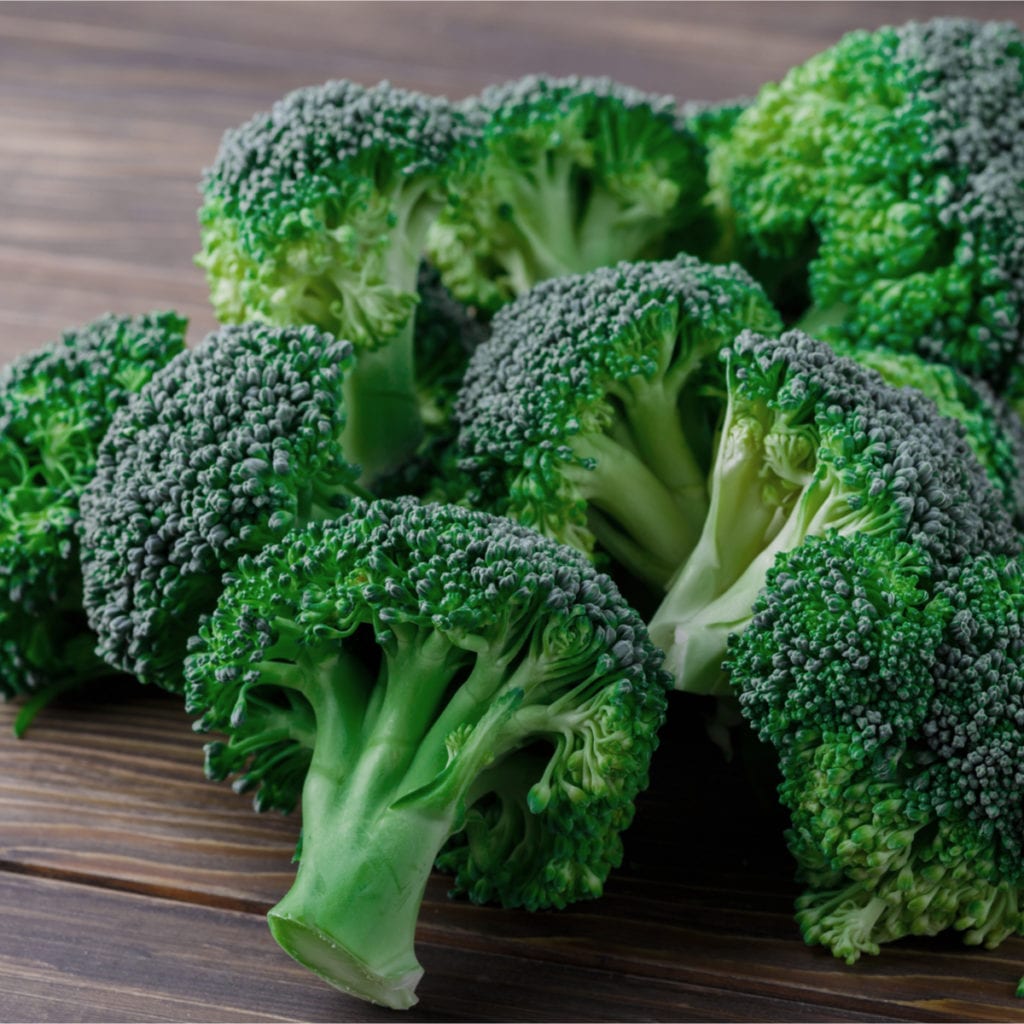
Broccoli is more diverse than many people realize. Here are some common types of broccoli:
1. Belstar
This hybrid strain of broccoli is known for thriving in the South during cold winters, and it also does well in hot weather. Belstar broccoli features six-inch blue-green heads.
2. Calabrese
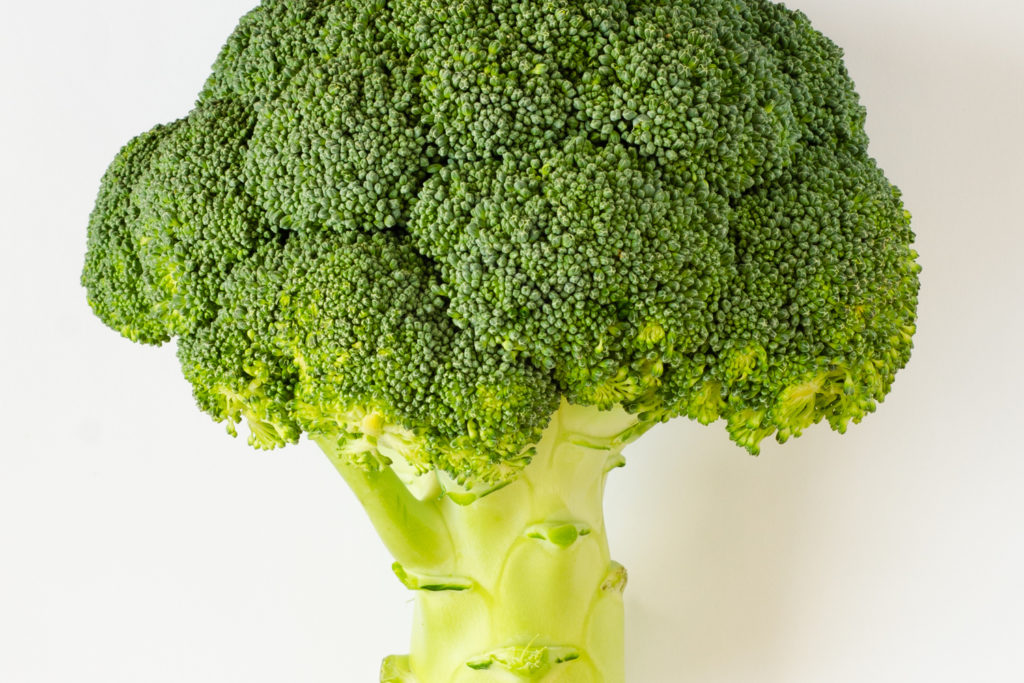
Calabrese broccoli is an heirloom strain of this vegetable. Its roots are in Italy, and it’s known for its medium to large green broccoli florets.
3. Destiny
The Destiny strain of broccoli is a hybrid that is known for being able to thrive in very hot conditions. You can identify Destiny broccoli by its small to medium green heads, which are tinged with purple.
4. Dicicco
As with Calabrese, Dicicco is an Italian heirloom. This strain produces small to medium heads that are blue-green in color.
5. Eastern Magic
Eastern Magic broccoli has been bred to thrive in the coldest parts of the U.S. and Canada. This strain of broccoli benefits your taste buds with its outstanding flavor, and it’s identified by its large blue-green crowns.
6. Green Magic
Green Magic broccoli has a distinctive buttery flavor. It’s bred to withstand the hot conditions found in the southern parts of the U.S. Green Magic broccoli has heads that are medium in size and blue-green in color.
7. Romanesco
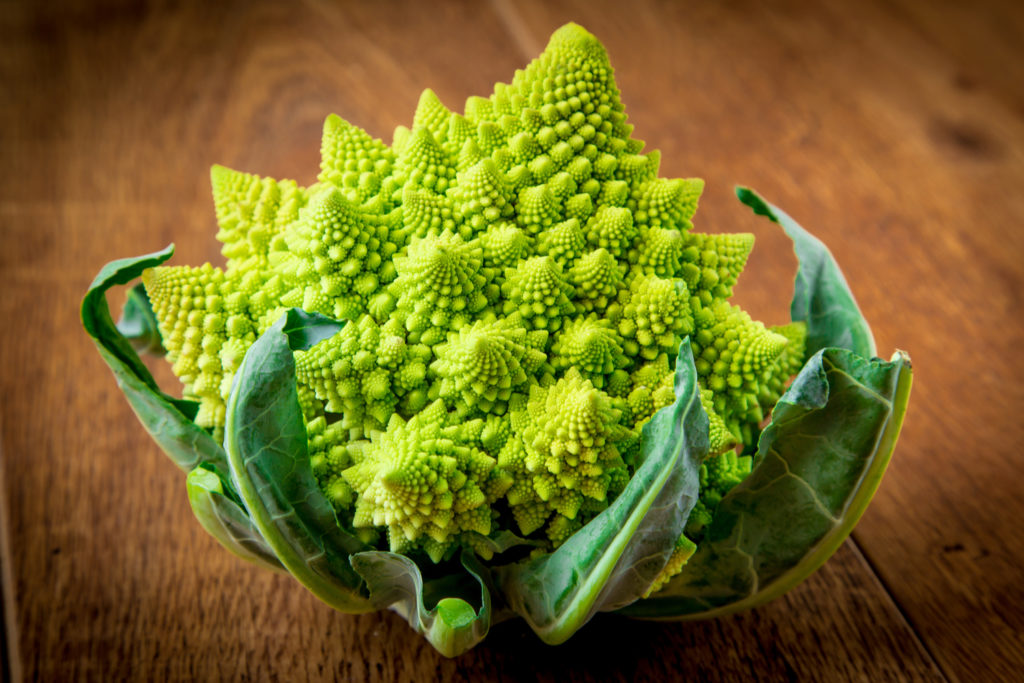
Romanesco broccoli is an old Italian heirloom. This type of broccoli benefits your palate with its uniquely nutty taste. It’s easily identified by its pointed spiral florets.
8. Sun King
Sun King broccoli is known for its delicious flavor, and it’s been bred to thrive in hot climates. This type of broccoli features blue-green heads that are about 6-8 inches in diameter.
9. Waltham 29
Waltham 29 is an heirloom strain of broccoli that thrives in cold weather. Its main heads are large in size and blue-green in color. This type of broccoli features lots of side shoots.
10. Purple Sprouting
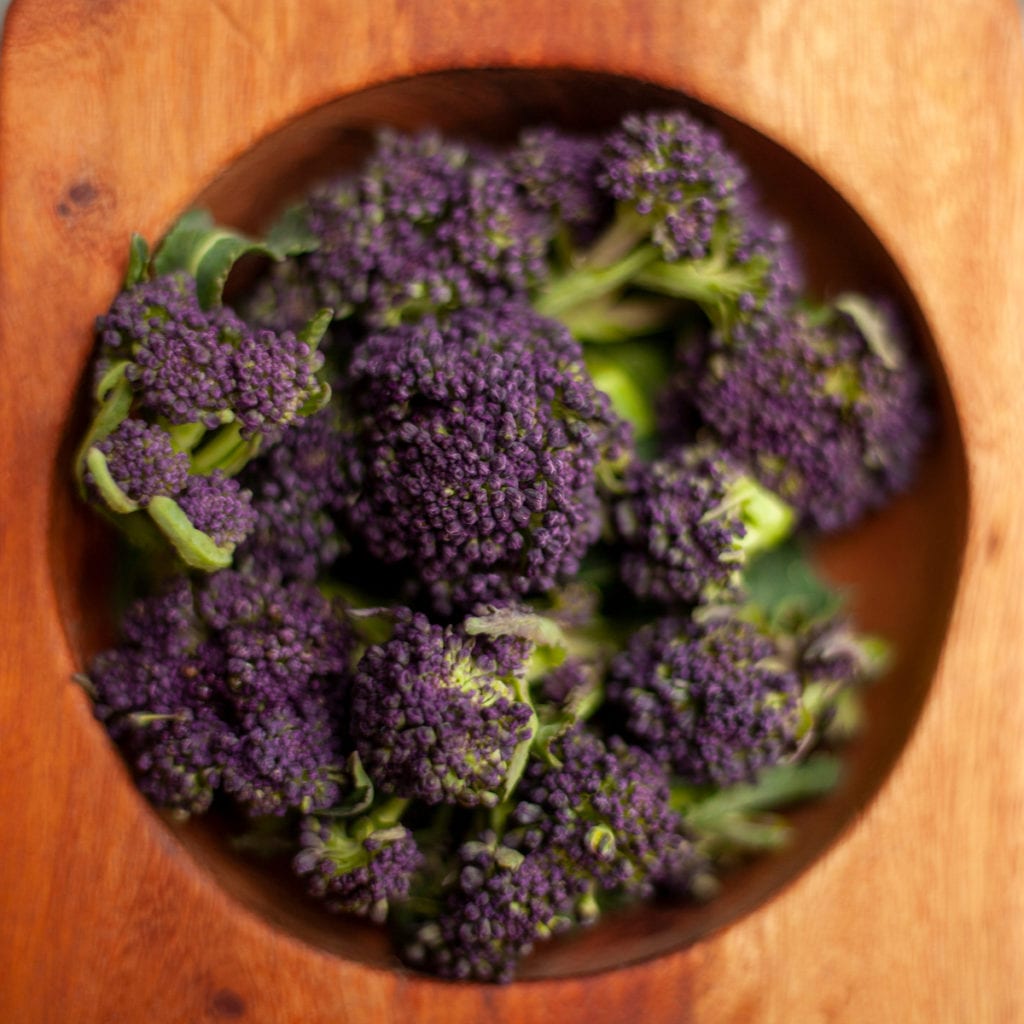
Broccoli isn’t always green. As its name implies. Purple Sprouting broccoli — also known as purple cauliflower — features small purple florets.
Broccoli’s close relatives
This plants are cousins of the broccoli vegetable:
1. Broccoli raab
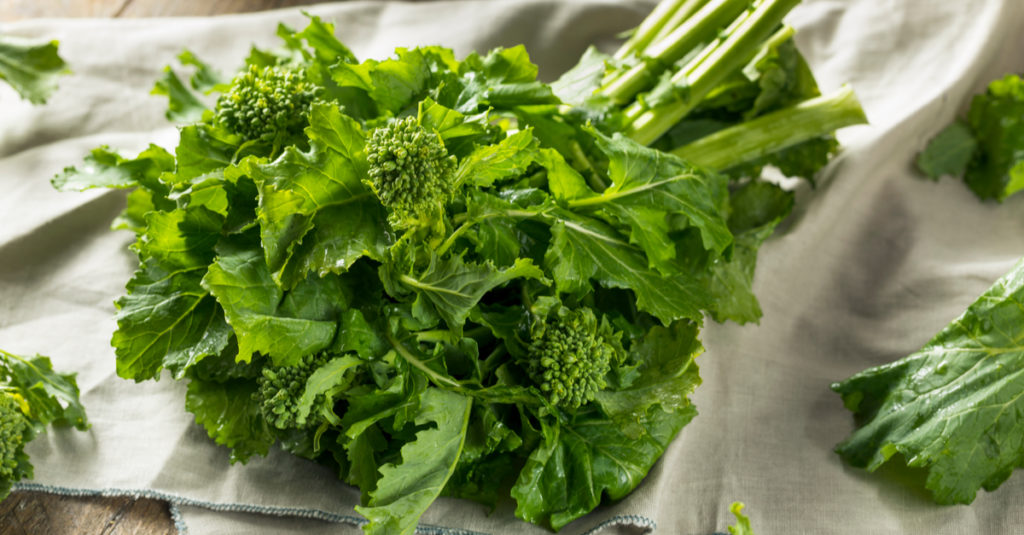
Broccoli raab (Brassica ruvo) is also known as Italian broccoli, raab, rapini and broccoletti. While it looks a lot like broccoli, it’s actually more closely related to turnips.
2. Chinese broccoli
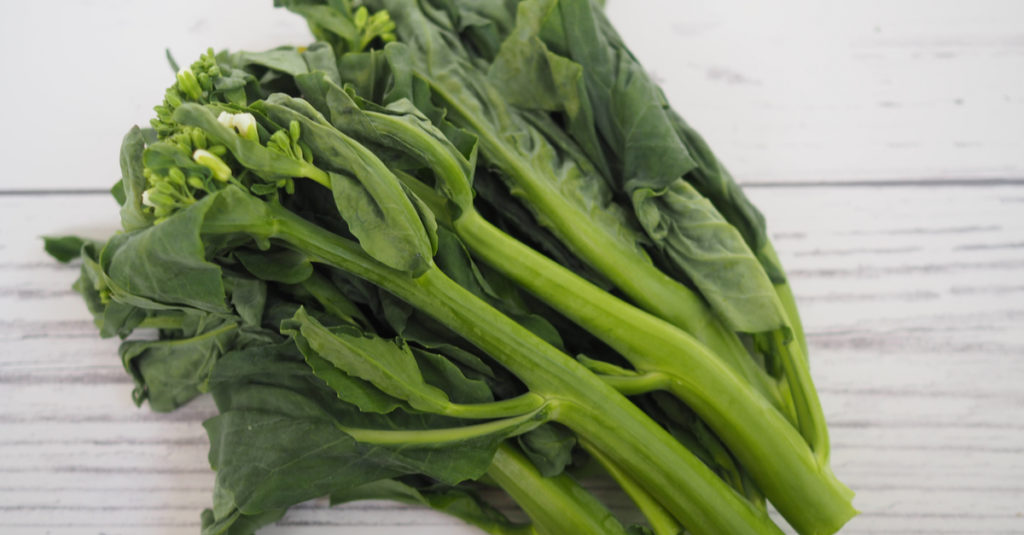
Chinese broccoli has thick stems and small florets, and its taste is somewhat bitter. Its botanical name is Brassica oleracea alboglabra, and it features leaves that are blue-green to dark green in color.
3. Broccolini
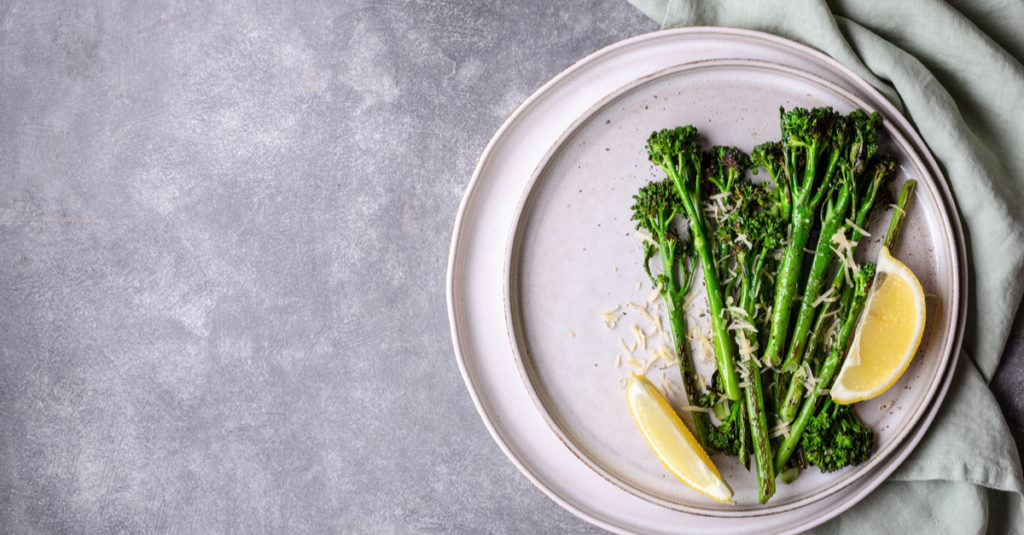
Broccolini (Brassica oleracea aspabroc) is thin-stemmed with small florets. Flavor-wise, it’s a combination of asparagus and broccoli.
How is broccoli prepared and consumed?

What are the options when it comes to broccoli consumption? You can eat your broccoli cooked or raw.
Interested in cooked broccoli? Here are some various ways in which this cruciferous veggie can be cooked:
- Boiling
- Microwaving
- Steaming
- Stir-frying
Both cooked broccoli and raw broccoli offer health benefits. However, if you want to get the most nutrients from your broccoli, it’s best to eat it raw, since research shows cooking reduces this vegetable’s nutrient content.
Cooking diminishes the amount of vitamin C and soluble protein that broccoli contains. The type of cooking that appears to allow for the highest amount of nutrient preservation is steaming.
Another option when eating broccoli is to consume the sprouts. A broccoli sprout is a broccoli plant that’s three to four days old. These sprouts resemble alfalfa sprouts.
Broccoli health benefits

Now it’s time to take a closer look at how broccoli can assist you on your wellness journey.
Broccoli benefits your health in these ways:
1. Reduces inflammation
Inflammation is the body’s way of protecting itself from harm, and it can help support the healing process. When inflammation occurs, the blood cells enlarge, and the body releases white blood cells to the affected area to help the body heal and recover.
There are two types of inflammation: acute and chronic. Acute inflammation happens in response to something such as a bee sting or an injury. Chronic inflammation often happens in response to an unhealthy diet that has lots of added sugar and saturated fats.
Over time, chronic inflammation can be deadly. It’s been associated with diseases such as diabetes and cancer. Chronic inflammation is also responsible for the debilitating joint pain that comes with arthritis.
Broccoli contains a host of bioactive compounds that can reduce chronic inflammation in your body. One of the most potent is a flavonoid called kaempferol. Studies show that kaempferol has potent anti-inflammatory properties.
In a study involving young male smokers, broccoli consumption led to a notable reduction in the markers of inflammation.
2. May reduce cancer risk
Let’s talk about cancer prevention. Broccoli benefits your health by offering protection against certain types of cancer.
Cancer is a huge health problem in the U.S. According to the National Cancer Institute, recent estimates show roughly 1.8 million new cases of cancer are diagnosed in this country each year. And it’s estimated that cancer causes about 607,000 deaths annually in the U.S.
Cruciferous veggies such as broccoli contain bioactive compounds that can minimize the cell damage caused by cancer.
Studies show that broccoli and other cruciferous vegetables may protect against these types of cancer:
- Breast cancer
- Prostate cancer
- Bladder cancer
- Colorectal cancer
- Bladder cancer
- Gastric/stomach cancer
- Renal/kidney cancer
3. Supports healthy blood sugar levels
Diabetes can cause disability, and it can be fatal. According to the American Diabetes Association, it affects about 10 percent of the U.S. population.
High blood sugar has been linked with diabetes. Studies show that eating broccoli may improve insulin resistance and support better blood sugar control in people with diabetes.
4. May support heart health
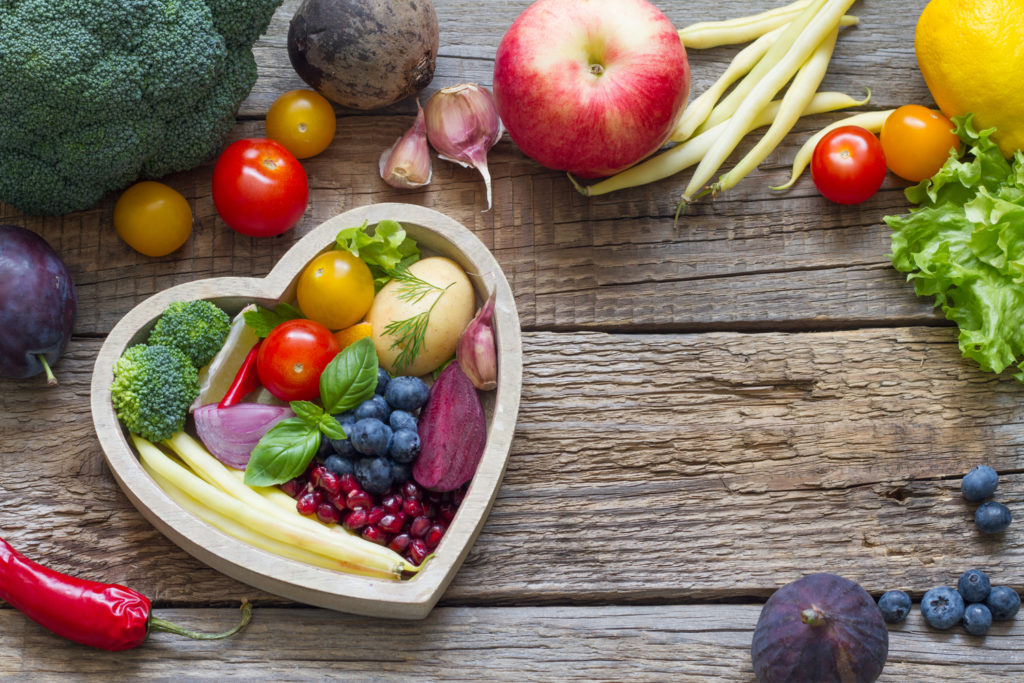
According to the Centers for Disease Control and Prevention (CDC), heart disease is the leading cause of death for men and women in the United States. It’s estimated that about 655,000 people in this country die from cardiovascular disease each year.
Broccoli benefits heart health in several different ways.
In a 2012 study, broccoli decreased serum triglycerides and helped foster healthier cholesterol levels. And research shows that the antioxidants in broccoli may help reduce oxidative stress and prevent heart attacks. Finally, broccoli is rich in fiber. Studies show that greater intake of dietary fiber is associated with a lower risk of heart disease.
5. Supports digestive health
If your gut is unhealthy, it can negatively your general health.
The fiber and antioxidants found in broccoli work hard to keep your digestive system healthy and strong. In a 2012 study involving mice, broccoli was shown to reduce colon inflammation and improve gut bacteria.
6. Supports healthy brain function
If you want to be productive at work and in life, you need a brain that’s sharp and healthy. Unfortunately, brain function can sometimes decline as we age.
Broccoli contains nutrients that can help keep your brain performing at its best. In a 2018 study involving 960 older adults, eating green leafy vegetables such as broccoli was associated with a reduction in the cognitive decline associated with aging. And a 2013 study showed that the kaempferol found in broccoli benefits brain injury and neuroinflammation.
7. Supports a healthy immune system
It’s no secret that vitamin C foods bolster immunity. This nutrient can give your body’s immune system the fortitude it needs to fight off harmful viruses and pathogens.
Broccoli is rich in vitamin C. A half-cup serving of cooked broccoli contains 84 percent of the RDI for this nutrient. This means that broccoli has the goods to play a potent role in supporting your body’s immune function.
8. Supports healthy bones

Broccoli contains nutrients that are essential if you want healthy bones.
This cruciferous veggie is rich in both vitamin K and calcium. Studies have linked vitamin K and calcium intake with bone health.
9. May slow the aging process
A lot of the signs we associate with aging are really signs of oxidative stress. If you can reduce oxidative stress in the body, you will be able to mitigate the signs of aging.
Broccoli contains a bioactive compound called sulforaphane. Research shows that sulforaphane supports the expression of the body’s antioxidant genes. This helps reduce oxidative stress. By doing this, it can help slow the aging process.
10. Protects eye health
Due to its nutrient content, broccoli benefits eye health in profound ways.
Lutein and zeaxanthin are two nutrients that are essential if you want healthy eyes. They help protect the retina from damage, and they can improve visual acuity. Lutein and zeaxanthin has also been linked with reduced risk of cataracts and age-related macular degeneration.
Broccoli is a rich source of both lutein and zeaxanthin. As such, this veggie is a great ally if you’re interested in protecting the health of your eyes.
11. Supports dental and oral health

Broccoli benefits dental and oral health in key ways.
Gum disease — also known as periodontal disease — is a common affliction. Broccoli contains vitamin C and calcium. Both these nutrients have been linked with reduced risk of periodontal disease.
Also, broccoli benefits oral health thanks to the sulforaphane it contains. Studies show sulforaphane can help reduce the risk of oral cancer.
Next steps
Ready to experience the many ways broccoli benefits your health? Stop by your local grocery store, and add this hard-working, nutrient-packed cruciferous vegetable to your shopping cart. At home, you can steam it, boil it, fry it or eat it raw. Drizzle your steamed broccoli with extra virgin olive oil for some Mediterranean flavor.
If you want to reap the benefits of a healthy diet but would rather skip the cooking and grocery shopping, subscribe to Fresh N Lean. We offer organic meals that contain healthy whole foods such as broccoli, and we deliver straight to your front door. Check out our chef-prepared meal plans, which range from vegan to keto.
Fresh N Lean is the nation’s largest organic meal delivery service. Our tasty, chef-prepared cuisine is always fresh and never frozen, and we offer convenient meal plans like Protein+, Keto, Paleo, Standard Vegan and Mediterranean. Choose Fresh N Lean for affordable nutrition, delivered to your doorstep.
